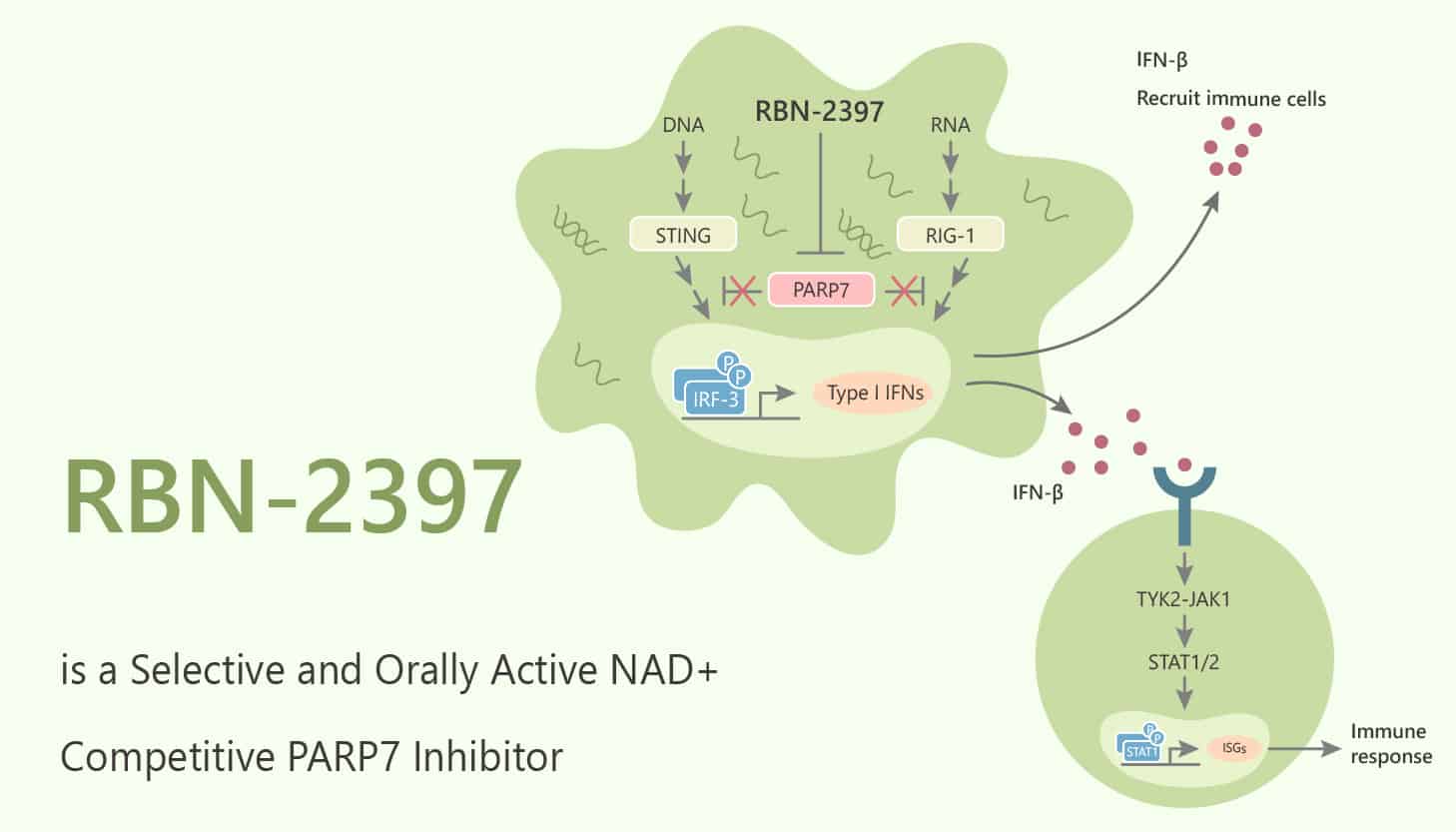PARP is a family of proteins involved in a number of cellular processes involving mainly DNA repair and programmed cell death. The PARP family comprises 17 members. PARP1, PARP2 (inhibitor Olaparib), and PARP7 are all potential anti-cancer targets.
PARP7 is a member belongs to the monoPARP family. The function of the monoPARPs is related to disease development in cancer and inflammatory conditions.
As a key member of monoPARPs, PARP7 enables cancer cells to survive by evading immune detection. Additionally, many cells, especially lung cancer cells rely on PARP7 for their intrinsic survival.
In this article, we will introduce a PARP7 inhibitor, RBN-2397.

RBN-2397 is a potent, selective, and orally active across species NAD+ competitive inhibitor of PARP7 (IC50<3 nM). It selectively binds to PARP7 (Kd=0.001 μM).
Firstly, in NCI-H1373 lung cancer cells, RBN-2397 inhibits cell proliferation with an IC50 value of 20 nM. It inhibits cell growth in a concentration manner. Besides, under 0.4 nM to 1 μM treatment, RBN-2397 shows an increase in STAT1 phosphorylation and results in the restoration of type I IFN response. In a cell biochemical assay, RBN-2397 inhibits cell MARylation with an EC50 value of 1 nM.
Nextly, in vivo, the half-life (t1/2) of RBN-2397 is 325 mins.
In CT26 tumor-bearing BALB/c mice and CB17 SCID mice with NCI-H1373 xenografts, RBN-2397 both decreases tumor volume and exerts anti-tumor effects. In the CT26 syngeneic model, RBN-2397 induces tumor-specific adaptive immune memory with durable complete responses. Besides, in CB17 SCID mice, RBN-2397 can cause complete regressions at the dose of 100 mg/kg. It exerts a dose-dependent effect on tumor growth at dose levels of ≥30 mg/kg.
In summary, inhibition of PARP7 with RBN-2397 shows inhibition on the growth of cancer cells and restores interferon signaling in cancer cells.
This inhibitor effectively contributes to the hide from the immune system detection. In vivo, RBN-2397 focuses on inhibiting overactive PARP7 in tumors. Furthermore, it demonstrates durable tumor growth inhibition in vivo. RBN-2397 has the potential for the study of solid tumors, including pancreatic cancer and ovarian cancer.
Reference:
Melissa Vasbinder, et al. Melissa Vasbinder • Ribon Therapeutics